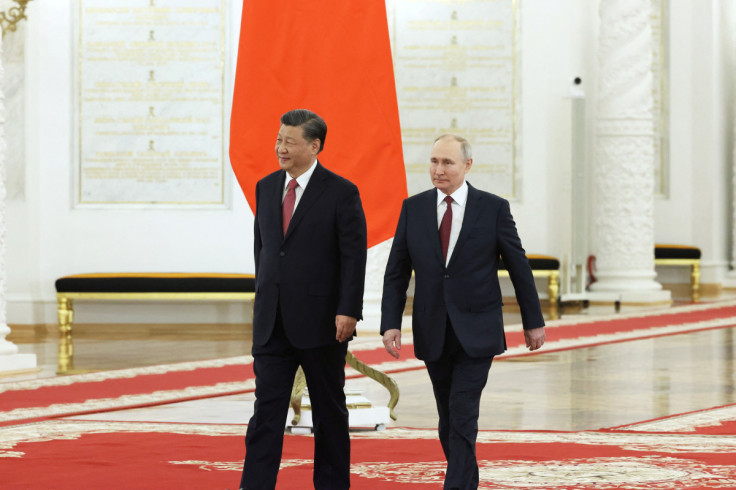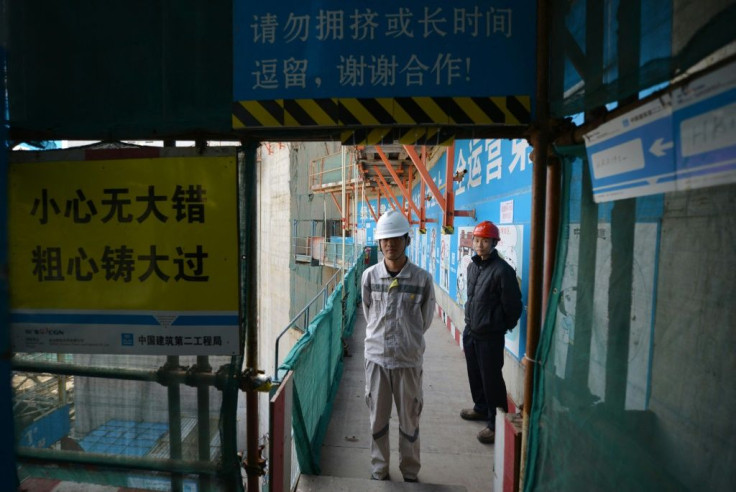China Partners With Russia To Build Reactor To Fuel Nuclear, Atomic Bombs

KEY POINTS
- Russia provided 25 tons of highly enriched uranium as nuclear material for China's reactor
- A senior Pentagon official said China's breeder reactors could expand its nuclear arsenal
- A Pentagon document warned that the U.S. could face two nuclear adversaries in the next decade
China and Russia, the United States' two main rivals, are working together to advance their nuclear programs, according to reports.
Russia has been providing China with nuclear material for its new reactor. The Russian state-owned nuclear energy corporation Rosatom recently finished supplying 25 tons of highly enriched uranium to jumpstart production, The New York Times reported.
This year, China is set to start one of its two new fast-neutron nuclear breeder reactors, each of which can generate not only 600 megawatts of electricity but also up to 200 kilograms (440 pounds) of weapons-grade plutonium each year, according to IEEE Spectrum. Plutonium is one of the primary fuels used in atom bombs, and that annual amount is enough for about 50 nuclear warheads.
China claimed that its nuclear breeder reactors, which were built on Changbiao Island, would be used purely for civilian purposes, contrary to the speculations that they would be used to produce nuclear weapons with Russia.
However, U.S. officials expressed skepticism over the project, warning that the reactor could be used to expand China and Russia's nuclear weapon production and produce arsenals whose combined size could dwarf that of the U.S., according to the Pentagon's estimates.
John F. Plumb, assistant secretary of defense for space policy, told Congress recently that he sees the reactors as delivering fuel for nuclear weapons and described Russia and China's cooperation as "very troubling."
"There's no getting around the fact that breeder reactors are plutonium, and plutonium is for weapons," the senior Pentagon official said.
The new nuclear undertaking between the two countries came after Rosatom and China's Atomic Energy Agency signed a long-term cooperation agreement involving the building of fast reactors, production of uranium-plutonium fuel, and management of spent nuclear fuel.
The nuclear agreement was announced during the meeting between Chinese President Xi Jinping and Russian President Vladimir Putin last month.
The nuclear cooperation between China and Russia echoes the Pentagon's policy document released last fall, which warned that the U.S. could "face two major nuclear powers as strategic competitors and potential adversaries" by the 2030s.
"This will create new stresses on stability and new challenges for deterrence, assurance, arms control, and risk reduction," the Pentagon said in the document.
China is expanding its nuclear production as Russia suspended its participation in the New START treaty with the U.S. and continues to threaten to use nuclear weapons on the Ukrainian battlefield.
Tong Zhao, a Nuclear Policy Program senior fellow at the Carnegie Endowment for International Peace, argued that China's nuclear expansion is aimed at challenging the U.S.' assessment of the international balance of power.
"The Chinese leadership has become even more determined to focus on the long-term China-U.S. competition and, if necessary, confrontation," Zhao said.
So far, experts have observed several signs that China is bolstering its nuclear ambitions, such as reprocessing plants for spent nuclear fuel, conducting construction activity at the Lop Nor nuclear test site, and enhancing its "triad," or the three ways of delivering nuclear weapons from land, sea and air.
According to the Federation of American Scientists, China currently has 410 nuclear warheads. But the Pentagon estimated that China's nuclear arsenal could grow to 700 within six years and may top 1,000 by 2030.

© Copyright IBTimes 2025. All rights reserved.






















